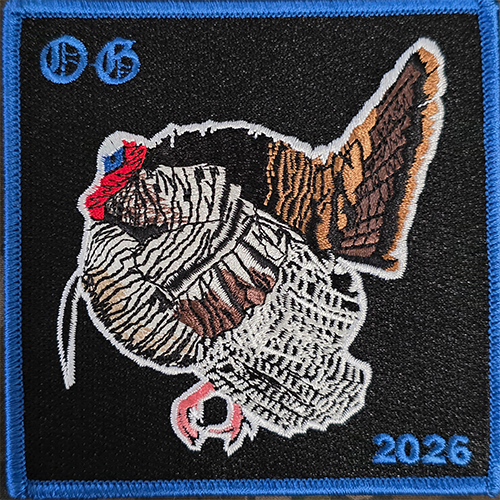I recently had the bad experience of losing my dog while hunting...
He got separated while headed back in (due to my negligence).
I searched everywhere for him, and went back to the area I hunted several times, and blew my whistle, fired my gun and called for him (although he is almost deaf from a previous ear infection).. I drove for miles glassing any areas I could, and asked anyone I ran across to keep an eye out.
I was hunting my club, and he is an older dog (11-12 years old) but looks and acts like a 6-7 year-old, and I thought he knew the club well. I figured he would show up at my hunting shack, but never did.
Just before sunrise, I called the wife and told her I was staying out; I would be missing the family dinner for my youngest child's B-day celebration (although not her actual B-day)... It was the end of the season, and nobody would be out in this secluded area to find him; I knew I had to find him that night or the next morning.
My wife made me promise to go out one more time and look in the exact tule patch I was hunting, and look carefully (she said he would be hiding). I knew this was complete nonsense, as I had removed the dog stand, and no dog would be standing in the water all day... Besides, I had already walked out there and check... But I obliged, and kept my promise.
Looking very carefully, he had found a high mound of tules, and was indeed buried under them; the exact spot we had hunted that morning, and I sure missed him on the first check. I could not believe he stayed out in that water all day, and he was a bit out of it, but followed me out. I believe he nestled in those tules for warmth, and had I not looked extremely carefully I would not have seen him. He was too out of it, to respond to my presence until I grabbed his collar.
A couple things I learned:
1) Dog riding out on the quad in the morning has no perspective of where you are going or where he/she is at when hunting. When I walk out with the dog, they have a good idea and perspective of where everything is though.
2) If you lose your dog, check the area you hunted, and look in the exact spot you hunted or lost him. He did not know where he was, but he was able to find where we had hunted.
3) When you think all is lost, do NOT give up!
I had already found a care-taker near-by, and my plan was to leave a kennel in the shack with his bed and one of t-shirts I was wearing, with some food.
Although not the case yesterday, myself and friends have had dogs get lost and disoriented in the fog. They cannot tell directionality with a whistle, so use your voice if this happens... When hunting fog, always get out of the blind and keep a line of sight on the dog. I keep a light in my pocket, and if the retrieve turns into a chase, I pull out the light, and keep in sight of the dog, so he can see me when he picks up the bird.
If you lose a dog in the fog (or any other situation), at least leave a kennel behind (maybe leave a shirt you were wearing or a dog bed as well). A friend of mine lost a dog a few years back, and he took this advice, and found the dog in the kennel after driving around and glassing for him.















